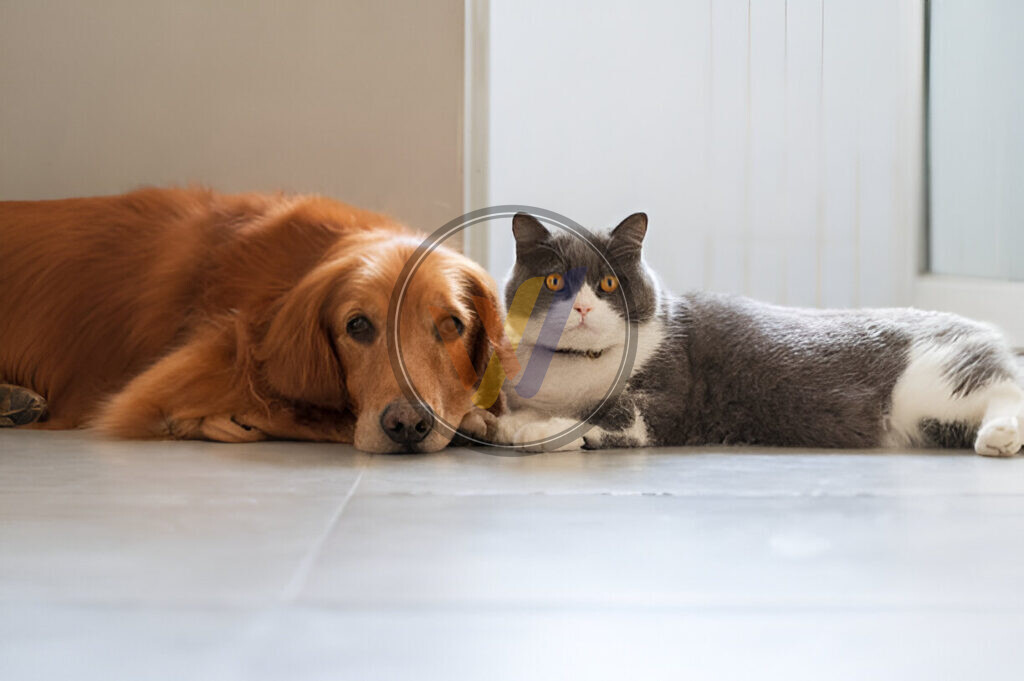BLOG
Managing Stress in Dogs and Cats: Causes, Signs, and Solutions
Why Do Dogs and Cats Get Stressed and How to Help Them Relieve It
Just like humans, dogs and cats can experience stress and anxiety in their daily lives. Stress in pets can lead to unusual behaviors, impacting their health and quality of life. So why do dogs and cats get stressed, and how can you help them overcome it?
Common Causes of Pet Stress
- Environmental Changes: Moving to a new home, changes in their living environment, or adding new members to the family can make dogs and cats feel insecure. They may need time to adjust to the new surroundings and can feel anxious during this process.
- Lack of Interaction and Socialization: Dogs and cats need attention and social interaction. When they are left alone for too long or lack communication with their owners, they can become lonely and stressed.
- Loud Noises: Loud noises from fireworks, thunderstorms, or other unexpected sounds can cause panic and stress in dogs and cats.
- Routine Disruptions: Dogs and cats are sensitive to changes in their daily routine. Sudden shifts in feeding times, playtimes, or sleep schedules can lead to anxiety.
- Health Issues: Illness or pain can contribute to stress in pets. The inability to express discomfort can make them feel helpless and anxious.
Recognizing Stress in Your Pets
Signs that your dog or cat might be experiencing stress include:
- Unusual Behavior: They might show increased aggression or become more fearful and withdrawn than usual.
- Changes in Eating Habits: Alterations in appetite, such as eating less or more, or refusal to eat, can indicate stress.
- Excessive Grooming: Over-grooming, especially if it leads to skin damage, can be a stress signal.
- Reduced Activity: A drop in energy levels and loss of interest in previous activities may suggest stress.
- Sleep Disruptions: Altered or interrupted sleep patterns can also signal stress in pets.
Effective Strategies to Alleviate Pet Stress
- Create a Calm Space: Provide a quiet, secure area where your pet can retreat and relax.
- Maintain Consistency: Keep their daily routine as consistent as possible, including feeding, playtime, and sleep schedules.
- Increase Interaction: Regular play and social interaction can help pets feel more secure and less anxious.
- Provide Stress-Relief Toys: Engaging toys, like chew toys or scratching mats, can help relieve stress and keep them occupied.
- Consult a Veterinarian: If stress might be related to a health issue, seek veterinary advice to address any underlying problems.
Observing and Understanding Your Pet
Careful observation is key to recognizing stress in your pets. Since they can’t communicate their feelings directly, being attentive to their behavior and addressing signs of stress promptly can greatly improve their well-being and strengthen your bond with them.
WINVN INT CO., LTD
Natural joy made in Vietnam
☎️ +84 932 118 447
📧 info@winvnint.com
🌐 winvnint.com
🌐 https://winvnint.trustpass.alibaba.com/
📌 29, 29 Street, Van Phuc Residence, Thu Duc City, Ho Chi Minh City, Vietnam
 Tel: (+84) 932 118 447
Tel: (+84) 932 118 447  Email: info@winvnint.com
Email: info@winvnint.com 










